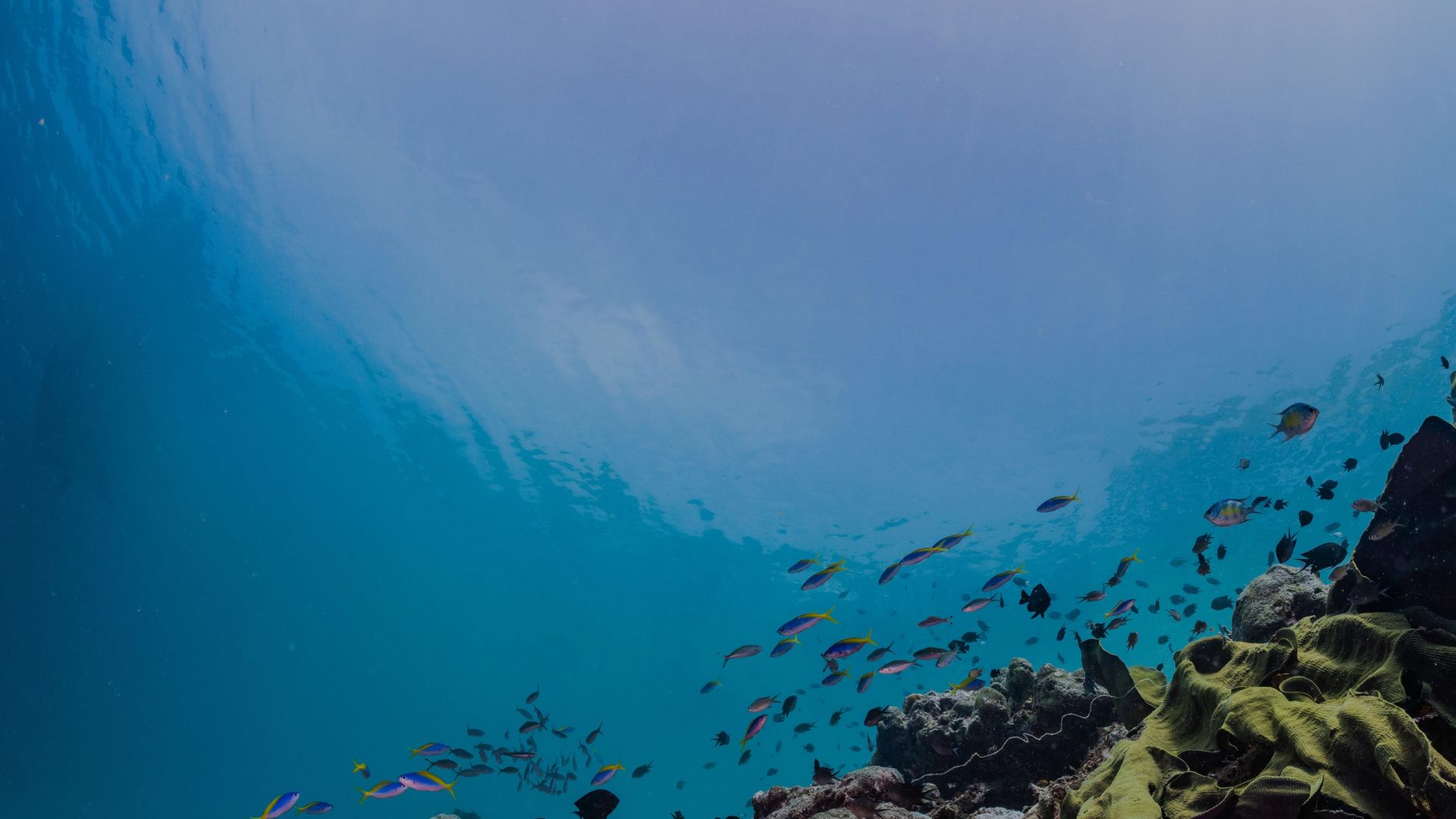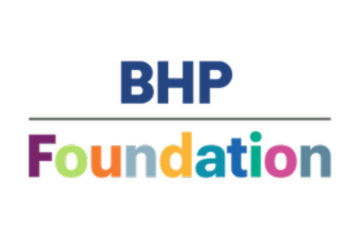Resilient Reefs Pasifika
Building the resilience of Pacific reefs and the communities that depend on them


#The challenge
The Pacific is home to 27% of the world’s coral reefs — and over 8 million Pacific Islanders rely on these reefs for food, livelihoods, and coastal protection. But climate change is threatening the survival of coral reefs.
Most reefs in the Pacific are expected to experience severe coral bleaching conditions at least twice per decade by the 2030s, with severe bleaching expected annually by the 2040s. Despite being the most vulnerable to climate change, Pacific Island Countries and Territories (PICTs) remain the most underfunded and least equipped to respond and adapt to climate impacts.
In response, PICTs have united under the 2030 Pacific Coral Reef Action Plan (PACRAP) — a shared, region-wide strategy to protect, restore and adapt coral reef systems. Despite this strong foundation and growing interest, current efforts remain fragmented, underfunded, and too small in scale to match the urgency of the climate crisis.
#Three key pathways to create deep, lasting change
Catalyse action to support local reef resilience solutions
Strengthen capacity by building skills, tools and leadership for communities and governments
Unlock capital by connecting funders to funding

#The solution
With escalating climate impacts, we must urgently resolve these barriers to ensure solutions can be delivered in a coordinated way across the whole region.
Resilient Reefs Pasifika, led by the Great Barrier Reef Foundation with the Secretariat of the Pacific Regional Environment Programme (SPREP) and Talanoa Consulting, is a five-year, AUD$15.2m initiative responding to this urgent challenge.
Resilient Reefs Pasifika will tackle both immediate needs through the deployment of urgent, scalable action, and longer-term needs by connecting and resourcing a pipeline of projects and funding. We will achieve this through two core activities: Pacific Resilience Hubs and a Pacific Coral Reef Action Accelerator Program.
#Pacific Resilience Hubs
Locally led action across Micronesia, Polynesia and Melanesia
The Pacific Resilience Hubs bring together traditional knowledge, scientific expertise and community leadership to tackle threats from ridge to reef. Each Hub will be led by a Pacific partner organisation with strong regional ties and technical expertise. With approximately AUD$1.5m in implementation funding per Hub, each will coordinate and fund local reef resilience projects, support regional capacity building, and foster collaboration across sectors.
The Hubs will:
- Coordinate reef projects across large areas
- Fund new and existing initiatives across reef and coastal catchments
- Connect local partners with resources, technical support, innovative solutions and new funding sources
- Build skills and capacity for reef resilience and climate adaptation
- Support collaborative donor models aligned with Pacific priorities
Hub countries

Polynesia
Samoa Resilience Hub
The Samoa Resilience Hub has been established with Conservation International (CI) at the helm, serving as a central platform to coordinate impactful conservation efforts across Samoa. With over 18 years of experience in ocean and ecosystem resilience, CI Samoa works closely with government partners and local communities to restore coral reefs and mangroves, address storm surge damage, and support sustainable ocean management. CI Samoa, in partnership with the Ministry of Natural Resources and Environment and the Waitt Institute, also co-led the nationwide Marine Spatial Plan under the Samoa Ocean Strategy 2020-2030 for the use and protection of its oceans, providing a strong foundation to scale coral reef efforts across Samoa. As part of Resilient Reefs Pasifika, CI Samoa will integrate traditional knowledge, scientific evidence, and community leadership to address climate and human-induced threats to reefs, enhance biodiversity, and support sustainable livelihoods throughout Samoa and beyond.
Image credit: Shaun Wolfe / Ocean Image Bank

Micronesia
Yap Resilience Hub
The Nature Conservancy (TNC) will lead the Resilience Hub in the Federated States of Micronesia, focusing on the State of Yap. TNC has been working alongside Micronesian communities and governments for over 30 years to support them in their efforts to protect, restore and sustainably manage their valuable resources and biodiversity. TNC’s conservation approach helps to identify how nature can play a meaningful role in solving the problems facing communities. It’s grounded in community-led solutions that are guided by science and bolstered by strong leadership, policy and sustainable finance. As part of Resilient Reefs Pasifika, TNC will work closely with communities and government to develop solutions for island resilience that help chart a course to a more sustainable, resilient and biodiverse future.
Image credit: Tim Calver

Melanesia
Coming soon
#Pacific Coral Reef Action Accelerator Program
Supporting a region-wide pipeline of reef resilience projects
The Accelerator Program identifies and supports a new cohort of four to six locally-led reef projects each year (for four years), helping them refine project design and readiness, strengthen delivery capacity, and connect to funders. Over AUD$1.6m will support technical expertise to overcome common feasibility and investment barriers.
The Accelerators will:
- Unite current and emerging leaders in reef action to coordinate and advance the Pacific Coral Reef Action Plan (PACRAP)
- Connect funders with a strong pipeline of initiatives grounded in Pacific priorities
- Build regional capacity through tools, technical advice and tailored project design support
- Enable donors to collaborate more flexibly with each other and Pacific leadership for greater regional impact
2025 Accelerator Projects

Ocean Tupuna
Cook Islands, Polynesia
Ocean Tupuna (Cook Islands) - A purpose-driven conservation initiative focused on strengthening coral reef and island community resilience, aiming to explore alternative livelihoods and safeguard marine biodiversity and cultural heritage. By fostering community collaboration, promoting youth education, and developing resilient, island-specific ocean-based actions, the initiative seeks to enhance local livelihoods and safeguard oceans and culture for future generations. The Accelerator will enable it to strengthen program design, organisational growth and foster regional collaboration in reef protection.
Image credit: Ocean Toa

Live & Learn
Solomon Islands, Melanesia
Live & Learn's ridge-to-reef approach aims to protect marine and terrestrial ecosystems and strengthen community-led resilience in sites soon to be selected in the Solomon Islands. The project design will consider the interdependence of ecosystems, the communities that rely on them for their livelihoods, safety, and cultural identity, as well as the impacts of climate change and environmental degradation. Emphasis on long-term viability will be explored through community leadership, stakeholder engagement, and innovative solutions for conservation and resilience financing. The Accelerator is supporting Live & Learn by strengthening the project design, facilitating donor engagement, and helping to scale its impact.
Image credit: Aelanlife/Courtesy Nakau and Live & Learn

RARE
Palau, Micronesia
RARE’s Fish Forever program empowers Palauan communities to manage coastal resources by blending fisheries management, traditional practices and scientific knowledge. Building on the success in Melekeok State — where Fish Forever is well established — the project plans to expand to Ngchesar and Ngiwal, forming the first ecologically and socio-politically networked marine management system along Palau's eastern coast. With Accelerator support, it will test and enhance the project design, engage with donors and potentially scale the project across the whole country.
Image credit: RARE

Drawaqa Marine Conservation Trust
Fiji, Melanesia
Born from a 20 year-long collaboration between resorts, dive businesses and local communities, the Drawaqa Marine Conservation Trust supports marine conservation in Fiji’s Yasawa Islands. Its current work focuses on expanding Locally Managed Marine Areas (Tabu areas), coral restoration, and sustainable tourism across multiple island communities in the Yasawa Islands. The Accelerator will enhance their organisational capacity, program design and donor connections, enabling them to scale reef-to-ridge interventions across this large, ecologically important archipelago.
Image credit: Drawaqa Marine Conservation Trust

Island Conservation
Tuvalu, Polynesia
Island Conservation restores islands for nature and people worldwide. It does this by bringing back biodiversity, the foundation of healthy ecosystems. Removing invasive species from islands is repeatedly proven to be one of the most effective ways to restore biodiversity, boosting seabird populations and increasing the flow of nitrogen-rich nutrients to nearby reefs. Its project will expand drone-based rat eradication efforts to Nukufetau Atoll in Tuvalu, building on recent drone-based eradication efforts in the Marshall Islands and working closely with community, traditional leadership, and government. The Accelerator will enable Island Conservation to validate its approach and build ecological and community resilience across the Pacific.
Image credit: Jesse Friedlander/Island Conservation

#Why it matters
- The Pacific is home to 27% of coral reefs globally
- Less than 4% of global reef funding reaches this region
- Coral reefs support $10tn in ecosystem services
- Without action, most reefs will face annual bleaching by 2040
Resilient Reefs Pasifika is scaling the solutions we need - led by Pacific communities, backed by science, and supported by global collaboration.





